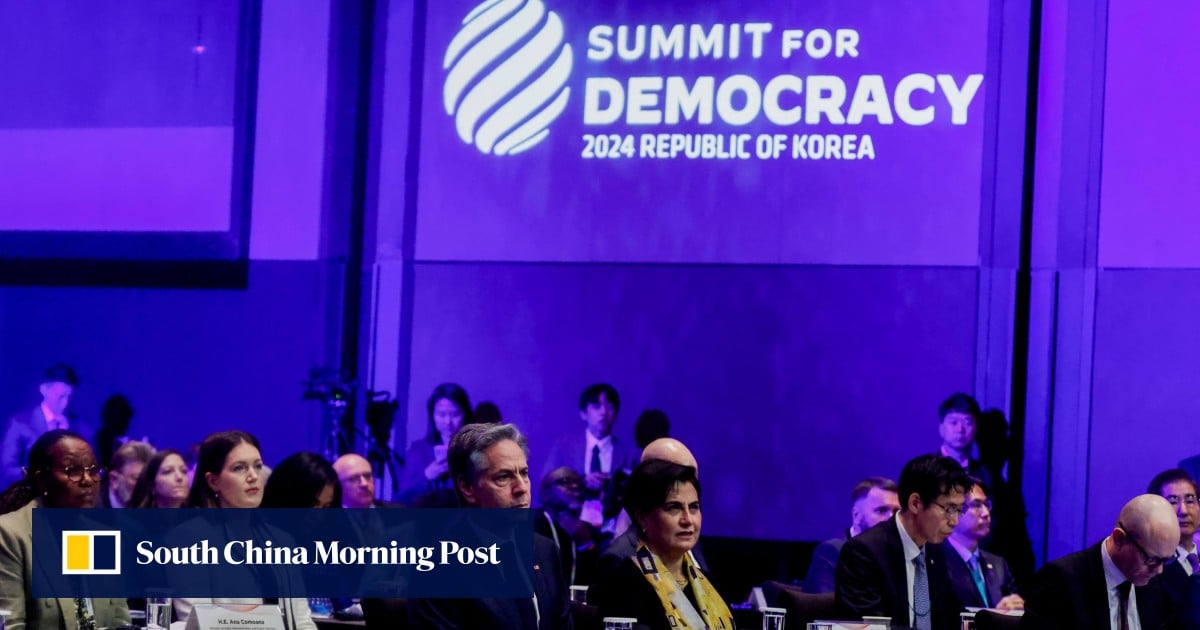The focus of the summit’s participants was more on processes than outcomes, Yeo said. While other multilateral forums might cover many of the same issues, the democracy summit was one of the few vehicles with the stated goals of advancing democracy, he added.
Is South Korea’s Yoon Suk-yeol at risk of becoming a lame duck president?
Is South Korea’s Yoon Suk-yeol at risk of becoming a lame duck president?
“The summit provided countries with a platform to take stock of a range of issues confronting countries, including non-democracies, at present and in the future,” Yeo said.
Norman Eisen, a senior fellow at the Brookings Institution think tank in Washington, DC, said the summit showed democracies are ready to unite and take firm steps against illiberal threats.
“The summit ensures that democracies and key stakeholders are on the offensive, making sustainable commitments to address malign actors, corruption, and challenges posed by disinformation and generative AI,” Eisen said.
Why democracy summit may mark shift in South Korea’s approach to China
Why democracy summit may mark shift in South Korea’s approach to China
Eisen, who is also chair at the States United Democracy Center, a non-partisan organisation advocating free and fair elections, said the summits since 2021 have laid the foundation for democracy to counter corruption and authoritarianism, and advance human rights.
“However, we must do more globally to bolster democracy in a time when leading democracies and citizens are under autocratic threat, including in the US”, Eisen added.
“The reason this summit was crucial lies in the recognition that overcoming these transnational challenges requires a collaborative approach” involving tech firms, civil society, and governments, Piatkiewicz said.
James Gomez, regional director at research institute Asia Centre, said the term “information integrity” emerged as a key concept at the summit to counter governments that are citing “disinformation” to justify restrictive laws on expression.
Gomez also called for the freedom of content producers to disseminate accurate information “without interference, especially from freedom-repressing governments”.
Beijing views Taiwan as a renegade province that should be reintegrated into mainland control, by force if necessary. While many nations, including the US, do not officially acknowledge the island as an independent state, they oppose any use of force to alter the existing status quo.

